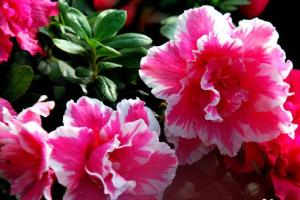How to raise Begonia in potted plants
Sticker Begonia flowers fresh and plump, gorgeous eyes, is one of the main spring flowers in the garden, then you know how to raise potted stem Begonia?
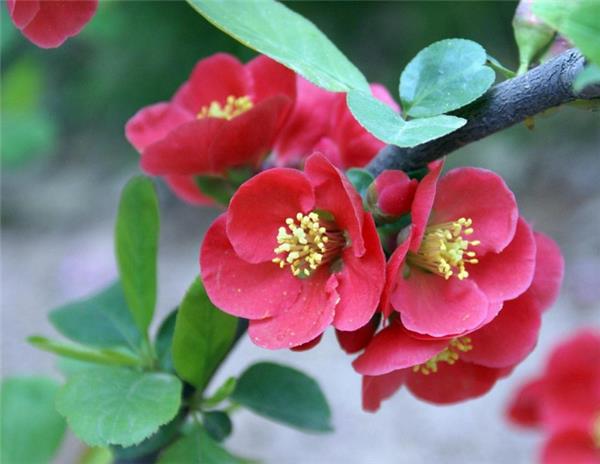
How to grow potted plants
Place: stick stem Begonia bonsai should be placed in sufficient light, air circulation places. Summer high temperature, to appropriate shade, to prevent sunburn leaves charred. Winter can be cold, can be buried in the soil basin, can also be put into the indoor window.
Watering: usually keep the basin soil moist, but pay attention to prevent ponding in the basin, otherwise easy to rot roots. Spring and summer growing season pot soil should not be too dry, especially during flowering to maintain sufficient water pot soil.
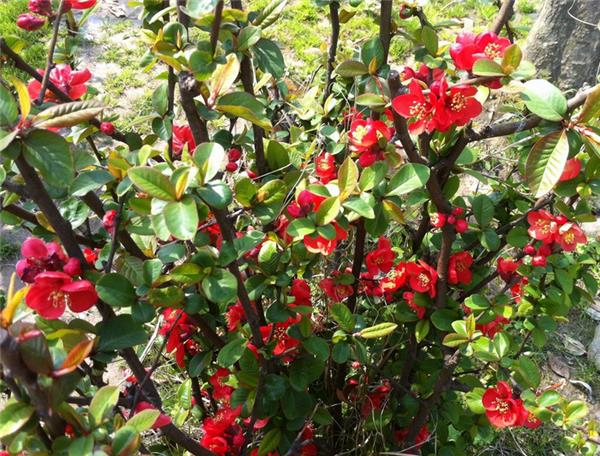
Fertilization: winter should apply enough base fertilizer, dry cake fertilizer or decomposed manure and bone meal is the best. During the growth period, except for the rainy season, thin fertilizer water is often applied.
Pruning: mostly after flowering, generally cut short the flowering branches to promote the formation of branches and flower buds and increase the number of flowers in the coming year. At the same time, the long branches, cross branches, overlapping branches and other effects of beautiful branches should also be cut off in time. After defoliation, the dormant period can be pruned, and the withered and senescent branches can be pruned to maintain a certain tree shape.
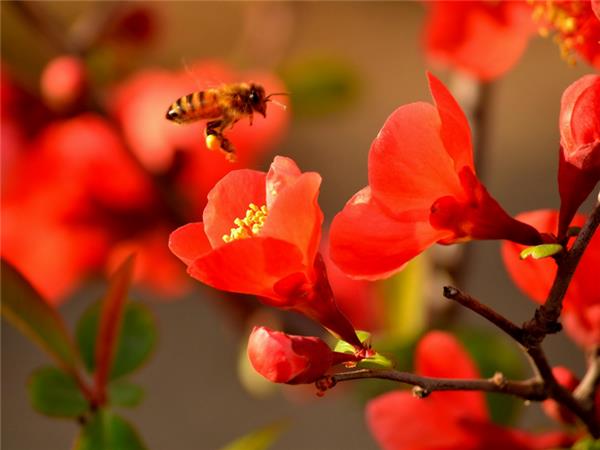
Turning pots: It is advisable to carry out once every 2 to 3 years, preferably after flowering in spring, or in autumn. When turning pots, combine pruning roots and put base fertilizer at the bottom of pots.
Disease and pest control: Begonia stem often rust damage leaves, can spray Baume 0.5 degrees of sulfur mixture for control. Insect pests are mainly aphids, thorn moths, red spiders and so on. Control methods with the Malus.
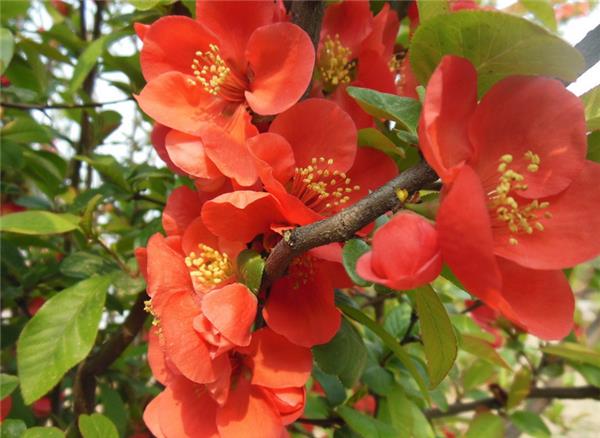
Finally, let's look at the morphological characteristics of the stem crabapple.
Deciduous shrubs, up to 2 m tall, spiny; branchlets terete, spreading, stout, purple-brown when young, glabrous, dark brown when old. Leaf blade ovate to elliptic, sparsely long elliptic, 3 - 10 cm long, 1.5 - 5 cm wide, apex acute, sparsely rounded obtuse, base cuneate to broadly cuneate, margin sharply serrulate, tooth tips spreading, surface slightly shiny, dark green, glabrous, abaxially light green, glabrous; petiole 1 - 1.5 cm long, glabrous; stipules large, leaflike, ovate or reniform, margin sharply double serrate, glabrous. Flowers 2 - 6 clustered on biennial branches, 3.5 - 5 cm in diam., opening before or at the same time as leaves; pedicels stout, 3 mm long or nearly sessile, glabrous; outside of calyx tube glabrous; calyx lobes erect, subsemicircular, apex rounded, entire or undulate, margin with yellow-brown eyelashes, outside glabrous, inside sparsely pilose, half of calyx tube long; petals subrounded or obovate, shortly clawed, 1 - 1.5 cm long, scarlet or reddish; Stamens 35~50, erect, 1~1.3 cm long, filaments slightly red; styles connate below middle, glabrous, nearly as long as stamens, stigma capitate. Pome globose to ovate, 3-5 cm in diam., yellow or yellowish green, inconspicuously sparsely spotted, aromatic, fruiting peduncle short or nearly absent. Flowering April, fruiting October. Plant height about 2m, branches erect or spreading, spiny. Leaves ovate or elliptic, stipules large and conspicuous. The flowers are red in color, opening first or with leaves. Flowers are born on 2-year-old branches, branches are clustered, branches have thorns, their pedicels are very short, flowers cling to the branches. Pedicel Begonia tree posture whirling, beautiful flowers, double, semi-double varieties, fruit spherical or pear-shaped, yellow when mature in autumn, fragrant smell.
Related
- Wuhan Hospital Iron Tree Blooming Result Was Instantly Frightened by the Gardener Master
- Which variety of camellia is the most fragrant and best? Which one do you like best?
- What is the small blue coat, the breeding methods and matters needing attention of the succulent plant
- Dormancy time and maintenance management of succulent plants during dormancy
- Minas succulent how to raise, Minas succulent plant pictures
- What are the varieties of winter succulent plants
- How to raise succulent plants in twelve rolls? let's take a look at some experience of breeding twelve rolls.
- Attention should be paid to water control for succulent plants during dormant period (winter and summer)
- Watering experience of twelve rolls of succulent plants
- Techniques for fertilizing succulent plants. An article will let you know how to fertilize succulent plants.



